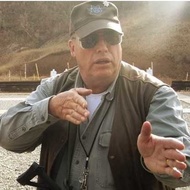10 Mar 14
Accidental Hero!
“Ah, stardom! They put your name on a star in the sidewalk on Hollywood Boulevard, and you walk down and find a pile of dog manure on it. That tells the whole story, Baby!”
Lee Marvin, US Marine, WWII hero, later Hollywood actor famous for “tough guy” portrayals.
Exploits of legendary American lawman, Eliot Ness, have been portrayed by actors Robert Stack, later Kevin Costner, and others. He and his team of agents, the “Untouchables” (so-called because they were ostensibly incorruptible), made a name for themselves in Chicago during the “Prohibition Era,” (Volstead Act) that lasted from 1920 to its repeal in 1933.
Modern-day rescripts of Ness’ career are mostly fictional. Ness’ legacy suffers from the same dramatically-convenient historical revisions as did those of Jim Bowie, Kit Carson, Wyatt Earp, “Wild Bill” Hickok, and a host of others.
Ness was a “Prohibition Agent,” in the US Treasury Department. Then Treasury Secretary, Andrew Mellon, gave Ness the formidable task of bringing down well-known Chicago gangster, Al Capone, and Ness did a credible job. It was a dangerous assignment, to say the least!
However, at his trial, Volstead Act violations against Capone were all dropped. He was eventually convicted on just a handful of tax-evasion charges and sentenced to eleven years in prison. Yet, in reality, it was a death sentence! When finally released from prison in 1939, Capone was severely mentally ill, in broken health, delusional, and suffering from advanced stages of venereal decease, for which was never treated. He died in obscurity in FL in 1947, two years short of his fiftieth birthday.
Ness’ career thereafter went forward, but he was himself, paradoxically, a pathetic alcoholic, and his progressively worsening alcoholism doomed two marriages and a number of subsequent public positions and private-sector jobs. His popularity, status, finances, and stamina relentlessly withered, as they always do with alcoholics, particularly high-profile ones!
In the last few years of his life, he would sit in bars and wistfully, endlessly recount, to anyone who would listen, his crime-fighting exploits in Chicago thirty years earlier. At this point, life offered him little else.
He died penniless in PA in 1957 (heart-attack) at the age of fifty-four.
He had his golden hour, and it was dangerous and exciting indeed, maybe too much so. As was the case with so many heroes of his era and before, the real cause of his death was irrelevance!
“The desire for fame is the last infirmity cast off by the wise”
Tacitus
/John



